Frequent urination results from drinking a lot of fluids, but it can also indicate urethritis, diabetes, or urinary tract infections - the treatment depends on the underlying cause.
FREQUENT URINATION: General | Causes of frequent urination | When to see a doctor | How does the diagnosis work | How does treatment work | Questions and Answers | Sources/references
Frequent urination is a problem that can happen to anyone, but it is more common in people over 70, pregnant women, and people with an enlarged prostate. Most people urinate 6-7 times a day. We talk about the frequency of urination when a person has to urinate more than seven times in 24 hours, provided that he has consumed about 2 liters of liquid during the day.
Urinating is a complex process involving different body systems, which means several factors can cause problems with this critical task. The lifestyle includes drinking a lot of fluids, including those that contain caffeine or alcohol, occasionally. This can disrupt the sleep cycle at night due to the need to urinate, which doctors call nocturia.
Picture: We talk about the frequency of urination when a person has to urinate more than seven times in 24 hours.
.jpg)
Frequent urination can also indicate an underlying problem, such as kidney or urinary tract problems, bladder problems, diabetes, and prostate problems.
Other causes or related factors may be as follows:
- urinary tract infection
- urethritis
- pregnancy
- bladder tumor
- sexually transmitted infections (STIs)
- tumor in the pelvic region
- interstitial cystitis, a type of inflammation of the bladder wall
- certain medicines such as diuretics
- neurological problems
- stones in the urinary tract
- radiotherapy
Image: pregnancy is a common cause of urinary frequency
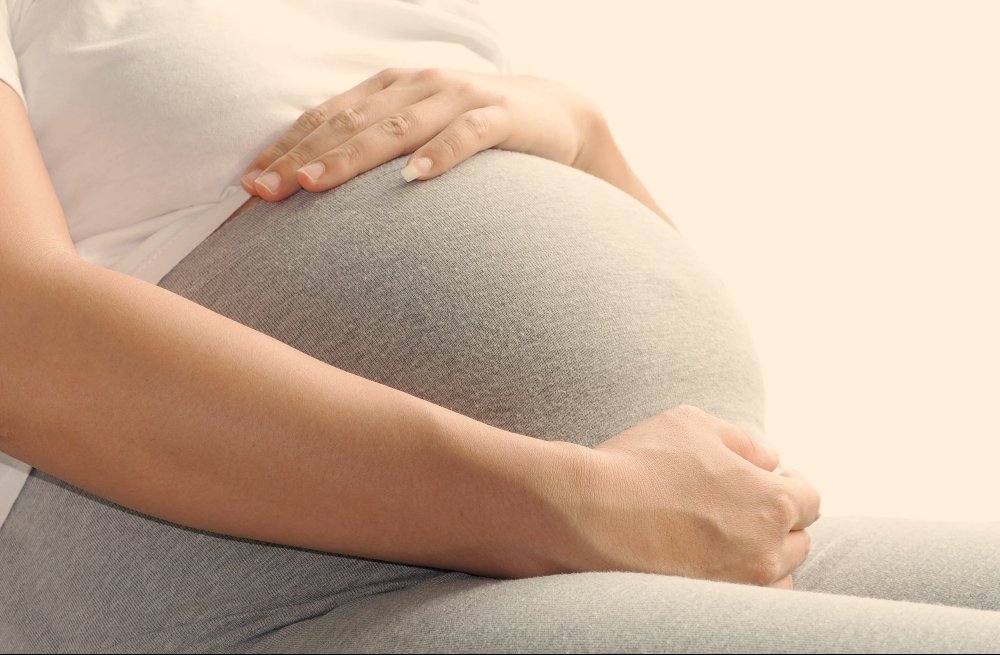
You may have a urinary tract infection if frequent urination is accompanied by fever, an urgent need to urinate, and abdominal pain or discomfort. Less common causes are pelvic organ prolapse (in women), bladder cancer, ovarian cancer, bladder dysfunction, and radiation therapy.
Causes of frequent urination
Diabetes
Excessive thirst and increased urination are common symptoms of type 1 and 2 diabetes. When you have diabetes, excess glucose builds up in your blood, causing your kidneys to work harder as they filter and absorb excess glucose. When the kidneys can no longer keep up with this process, excess glucose is excreted in the urine, and it also drags fluids from the tissues with it, making you thirsty.
Other common symptoms of diabetes include:
- feeling very thirsty
- weight loss and loss of muscle mass
- wounds or ulcers heal more slowly
- frequent vaginal thrush or penile thrush If it contains only small amounts of urine, causing more frequent urination. Men may initially have pain or difficulty urinating; frequent urination, urgency, or urinary retention may occur.
Once the bladder returns to normal, men may have temporary problems with urinary control, but long-term urinary incontinence is rare. The longer the problems with urination existed before the operation, the longer it took for the bladder to regain its full function after the operation.
Interstitial cystitis
This unknown cause condition is characterized by bladder and pelvic region pain. Symptoms often include an urgent and frequent need to urinate. In the case of IC, your bladder holds urine after the kidneys filter it out - this causes an uncomfortable pain below the belly button.
Image: if you have diabetes, excess glucose accumulates in the blood, which causes increased activity of the kidneys and cells.
.jpg)
Other symptoms of interstitial cystitis include:
- in women, pain during intercourse
- in men, pain during orgasm or after intercourse
- in women, pain in the vulva, vagina, or area behind the vagina
- in men, pain in the scrotum, testicles, penis, or scrotal area
- pressure in the bladder and pain that worsens as the bladder fills
- pain in the lower abdomen, lower back, pelvis, or urethra
Stroke or other neurological conditions
Bladder and bowel problems are common after a stroke. A stroke can damage the part of the brain that controls your bladder or bowels. Urinary retention can also occur shortly after a stroke. You may have difficulty emptying your bladder, but this usually only lasts a few days for most people.
Bladder problems after stroke:
- more frequent need to urinate
- wetting the bed during sleep
- the sensation of a sudden and uncontrollable need to urinate
Video content: frequency of urination - causes, symptoms, diagnosis, and treatment.

- awakening from sleep with an urgent need to urinate
- leakage of tiny drops of urine when you cough, sneeze, or laugh
- urinating without realizing it
Hypercalcemia
Hypercalcemia is a condition where calcium levels in the blood are above average. Causes include overactive parathyroid glands (hyperthyroidism or hyperparathyroidism), other diseases (tuberculosis, sarcoidosis), or cancer (lung, breast, kidney, multiple myeloma).
Other symptoms of hypercalcemia may include:
- closure
- excessive thirst
- irritable stomach
- nausea and vomiting
- bone and muscle pain and weakness
- confusion, tiredness, and depression
- fast or skipping heartbeats (arrhythmia) and other heart problems
Bladder cancer
Bladder cancer develops in the inner lining of the bladder – a hollow, balloon-shaped organ in the lower part of the abdominal cavity that stores urine. It most commonly occurs when the cells that make up the bladder, urothelial cells, grow uncontrollably and form a tumor. Early symptoms of bladder cancer, such as the need to urinate more often or pain during urination, can also indicate more benign problems, such as a urinary tract infection.
Image: early symptoms of bladder cancer are the need to urinate more often or pain during urination.
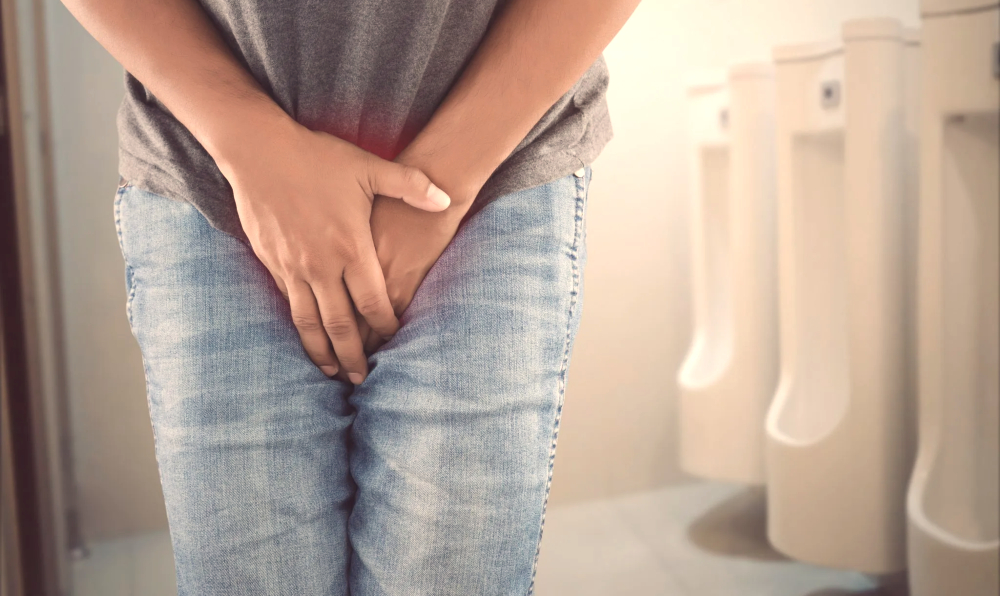
While blood in the urine can also indicate another problem, such as kidney stones, a doctor must check the blood as soon as you notice any changes in your bladder habits. After all, early detection of bladder cancer can significantly impact the course of treatment itself.
More common indicators of bladder cancer include:
- pain in the abdomen and lower back
- blood in the urine (hematuria)
- urinates oftenanje
- painful urination
Urinary tract infections
A urinary tract infection is an infection of any part of the urinary system. The urinary system includes the kidneys, urethra, bladder, and urethra. Most infections involve the lower urinary tract – the bladder and urethra. Women have a higher risk of developing a urinary tract infection. If the infection is limited to the bladder, it can be painful and annoying, but if it spreads to the kidneys, it can cause serious health problems.
Urinary tract infection usually occurs when bacteria enter the urinary tract through the urethra and begin to spread in the bladder. The urinary system is designed to prevent the spread of bacteria, but the defenses fail from time to time. Bacteria can become trapped in the urinary tract, which can develop into a full-blown urinary tract infection.
Image: The urinary system is designed to prevent the growth of bacteria, but the defense sometimes fails.
.jpg)
Common symptoms may include:
- pelvic pain in women
- a strong urge to urinate that does not go away
- burning sensation when urinating
- urine that looks red or light pink
- urine that is cloudy in appearance
- urine with a pungent smell
Drinking large amounts of liquid
When you stay hydrated, your body gets rid of what it doesn't use, which in turn causes you to urinate more often. Your hydration needs will vary based on your activity level and environmental factors. But if you want to urinate more often, you can drink more liquid than you usually need.
When is a visit to the doctor necessary?
Many causes of frequent urination are nothing to worry about. If you have the urge to urinate more than eight times a day, or if you feel like you're urinating more than is normal for your body, talk to your doctor.
Since the conditions that cause frequent urination range from minor to more serious, you should discuss anything that deviates from your standard urination patterns with your doctor.
Image: If you have the urge to urinate more than eight times a day, consult your doctor.
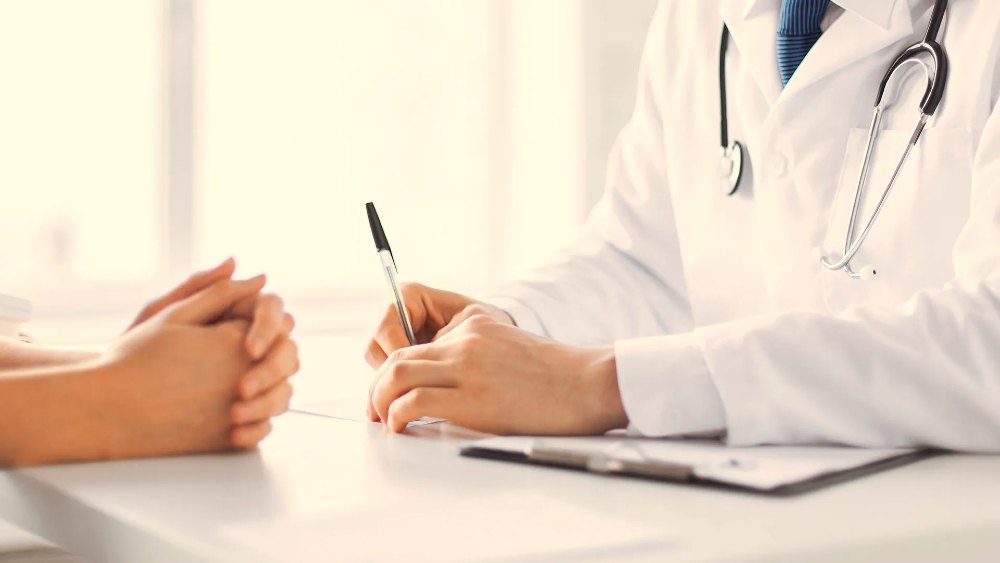
See your doctor if you have these signs along with frequent urination:
- elevated body temperature
- pain in the lower back or side
- blood in the urine (hematuria)
- discharge from the penis or vagina
- nausea and vomiting
Diagnosing
Frequent urination can be a symptom of many medical conditions. Your doctor will usually do a physical exam and ask if you are taking any medications, have any symptoms of infection, or have changed your eating or drinking habits in any way.
Your doctor will probably also refer you for a urine sample to check for bacteria (urine culture) or white blood cells (urinalysis) that could indicate an infection. If red blood cells are confirmed (three or more), urine cytology will be ordered.
Video content: 3 simple tips for less frequent urination at night.

Other possible tests include:
- Urodynamics: This test tests how your bladder muscles work.
- Cystoscopy: This test involves inserting a camera to look into your bladder.
- Ultrasound or CT: This test looks for cancer or structural abnormalities.
Treatment
Treating the underlying condition is usually the best way to deal with frequent urination. This could mean controlling diabetes, treating a urinary tract infection, or treating cancer.
Treatment may also include anticholinergic medications such as Ditropan (oxybutynin), medications such as beta-3 adrenergic receptor agonists such as Myrbetriq (mirabegron) or Gemtesa (vibegron), and Botox injection or other procedures to modulate the sacral or other nerves.
Image: the treatment of frequent urination depends on the cause.
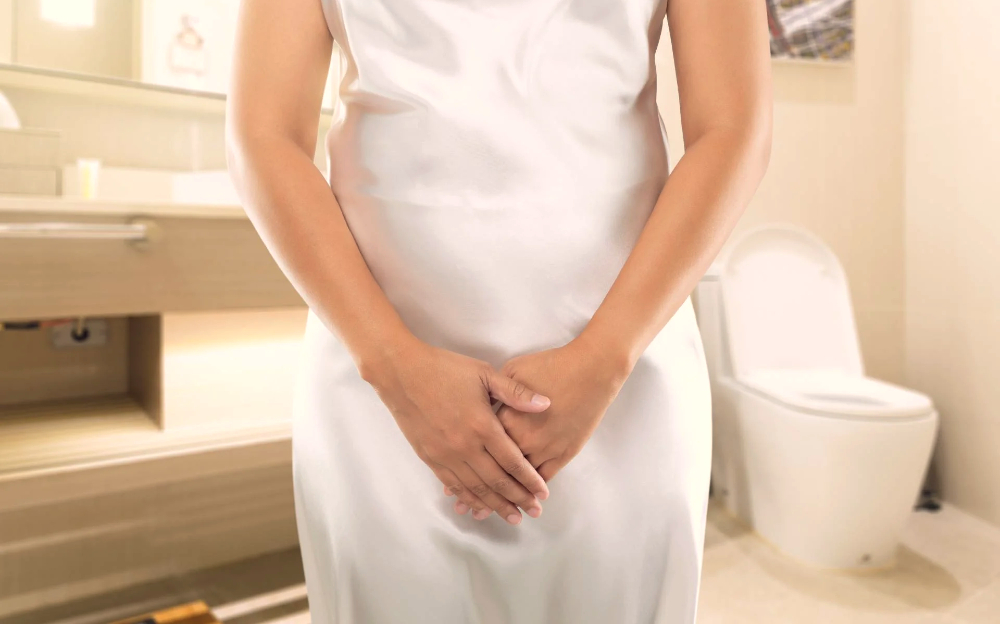
If the condition is diagnosed as an overactive bladder, treatment may include the following:
- change in diet
- monitoring fluid intake
- behavioral therapy, such as bladder training
- kegel exercises to increase the strength of the pelvic floor muscles
For even more control over your overactive bladder, consider trying a behavioral therapy called "timed urination." You do this by tracking how often you urinate and then setting a schedule that adds 10 or 15 minutes to the interval between toilet breaks. If you usually urinate every 45 minutes, try urinating every hour. Extend the interval until you can last at least two hours between visits to the toilet.
Toward the evening, try to avoid certain foods and drinks that increase the likelihood of nocturnal urination, such as alcohol, citrus juice, coffee, tea, tomatoes and tomato-based products, and artificial sweeteners. Constipation can also contribute to frequent urination by putting pressure on the bladder, so you may want to increase your fiber intake to keep bowel movements regular.
Questions and answers
What are the most common causes of frequent urination?
Common causes include:
- urinary tract infection
- pregnancy
- enlarged prostate
- swelling and infection of the urethra
- vaginitis (swelling or discharge of the vulva and vagina)
- nerve-related problems
- excessive fluid intake
- diabetes[1]
What helps against frequent urination?
Treating the underlying condition is usually the best way to deal with urinary frequency. This could mean better control of diabetes, treating a urinary tract infection, or treating cancer.
Try a behavioral therapy called "timed urination." Track how often you go to the bathroom and then set a schedule that adds 10 or 15 minutes to the interval between bathroom breaks. Towards the evening, avoid certain foods and drinks that increase the likelihood of nocturnal urination, such as alcohol, citrus juice, coffee, tea, tomatoes and tomato-based products, and artificial sweeteners[2].
What are the complications in case of untreated inflammation of the bladder?
Complications can include recurrent infections, meaning you have two or more infections in six months or three or more in a year. Women are particularly prone to recurrent infections due to their shorter urethra. Permanent kidney damage can result from an untreated infection[3].
Sources and References
1. Frequent Urination - https://www.pennmedicine.org
2. An Overview of Frequent Urination - https://www.verywellhealth.com
- 3. Urinary tract infection (UTI) - https://www.mayoclinic.org/
- blurred vision
- fatigue
Pregnancy
Frequent urination is one of the most common early pregnancy symptoms, which begins in the first trimester, around the 4th week. Most women find that they need to urinate even later in their pregnancy, starting around week 35. Excessive urination is caused by the pregnancy hormone hCG, which increases blood flow in the pelvic area.
Video content: urine leakage during pregnancy - tips to prevent involuntary urine leakage.

The hCG hormone also increases blood flow to the kidneys, which become more active during pregnancy. When your kidneys start working faster, your body gets rid of waste products, including your baby's, more quickly. Your growing uterus also bears some responsibility, putting pressure on your bladder, giving it less and less room to store urine.
Prostate problems
An enlarged prostate can press on the urethra and consequently block the flow of urine, and because of this, the bladder wall becomes irritable. The bladder begins to contract, too.





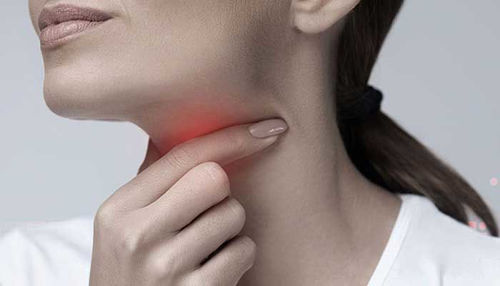
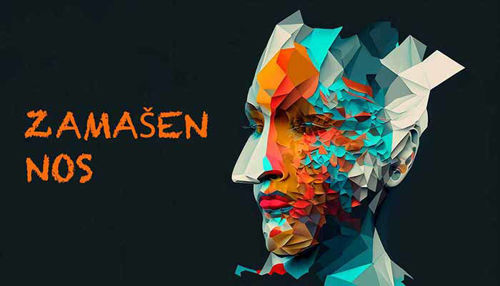
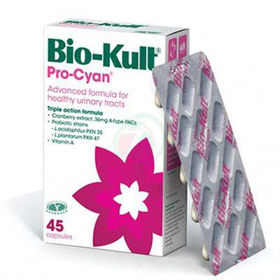
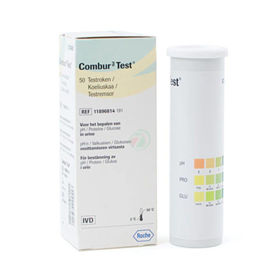
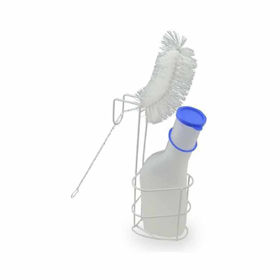
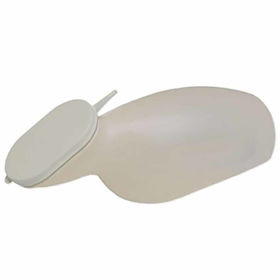

 Facebook
Facebook
 Instagram
Instagram
 info@moja-lekarna.com
info@moja-lekarna.com

